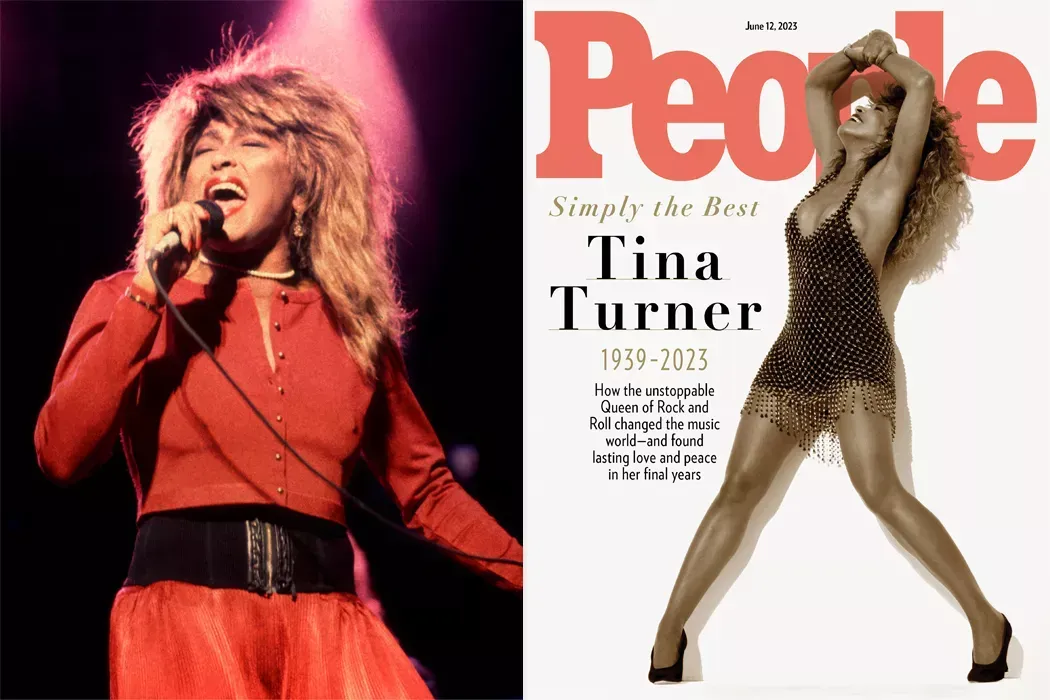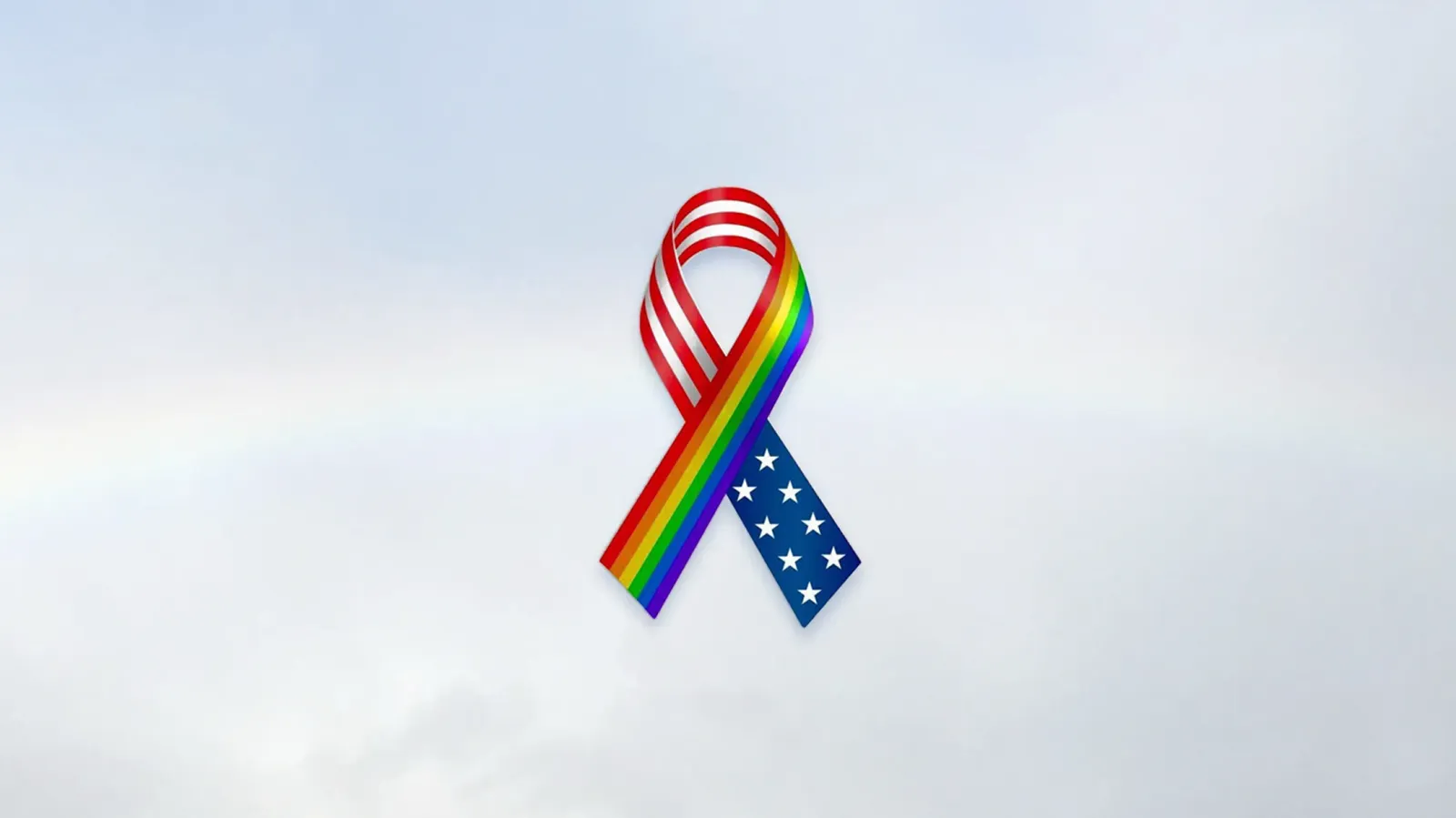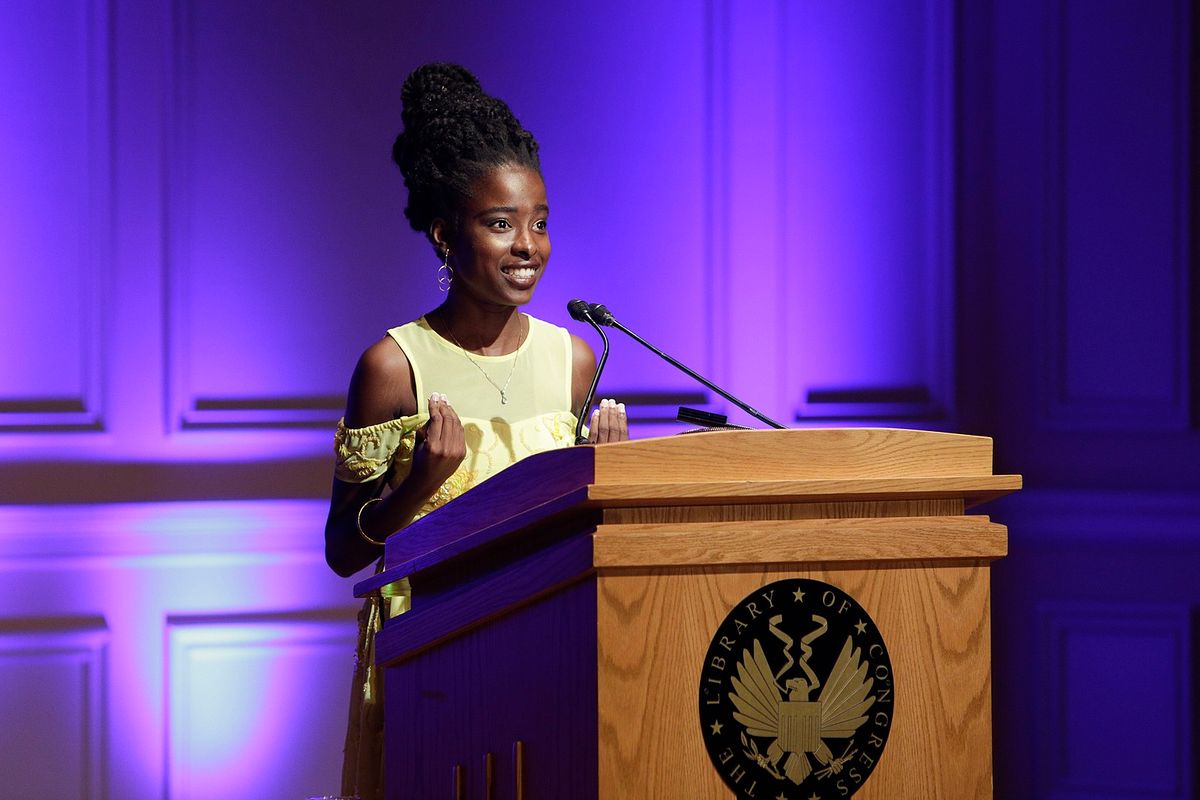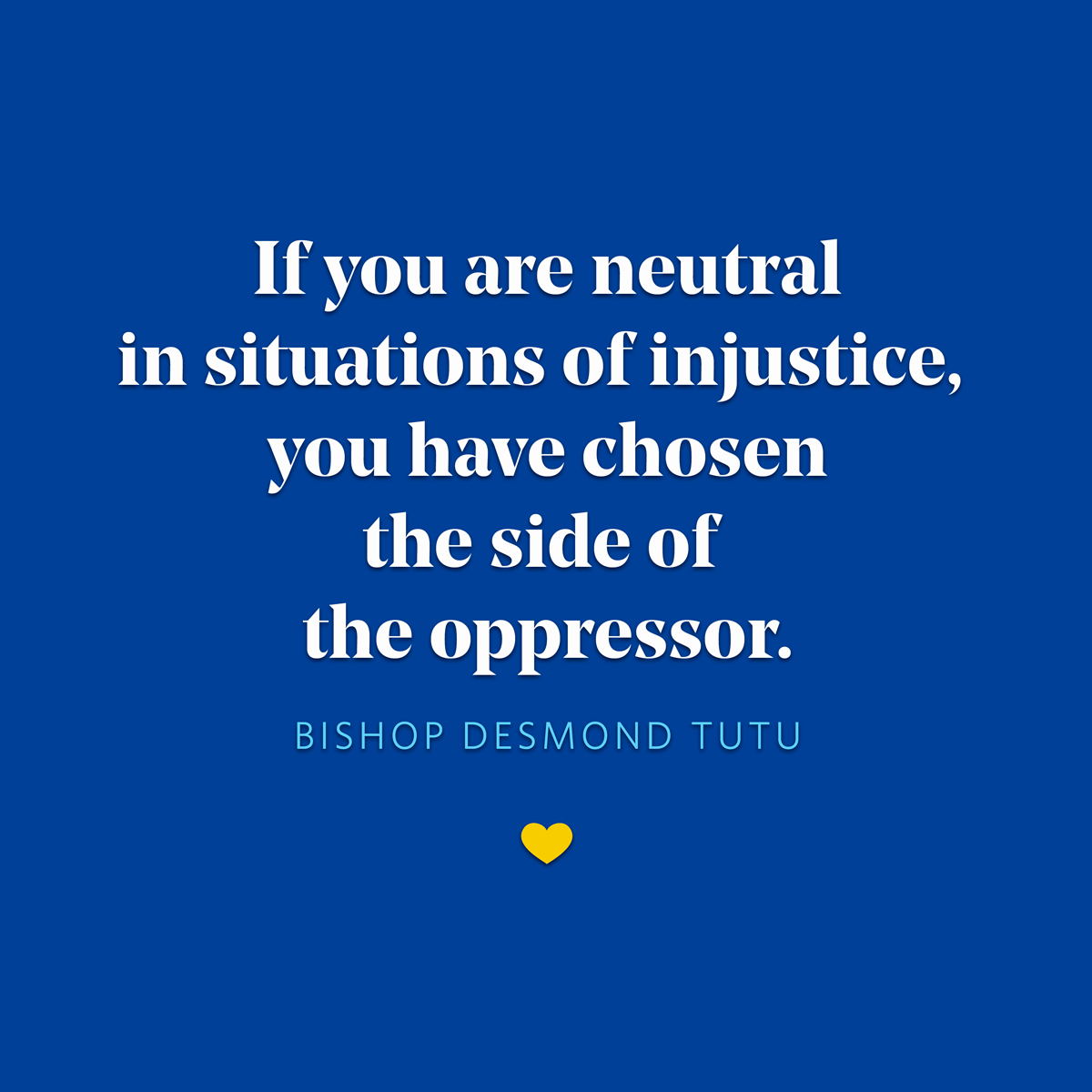|
OHF Weekly, Vol. 5 No. 21: Editor’s Letter, “Tina Turner: Defiance, Sexuality, and Resilience,” “Pulse: One Year Later,” and a quote by Bishop Desmond Tutu. Editor’s Letter💛 Hey Reader, The increasing hate and bigotry of the past several years has become almost unbearable in America. It’s as if almost half of our fellow Americans have traded in every shred of their integrity—nay, their very humanity—for the right to be openly racist . . . sexist . . . homophobic . . . transphobic . . . xenophobic . . . . If you’re in one of the oppressed groups, I can imagine the added fear and horror, and I’m so sorry. If you’re a straight white person but at all empathetic, and I suspect you are if you’re reading OHF Weekly, it’s heartbreaking. It’s become so painful that my family has considered moving overseas, but that would be taking advantage of our privilege and so unfair to the groups being targeted, many of whom lack this flexibility. And sadly, where America goes, all too often other countries go, as well. My daughters in Brazil, Italy, Spain, and France (for those who are unaware, we’ve hosted almost a dozen exchange students over the years) have all reported a rise in fascism and bigotry in their countries. Life has become a delicate balancing act of keeping up with the news so I can be as supportive as possible, while at the same time trying to keep it all to a low roar for my mental health. (I know I’m hardly alone in this, take care of yourselves!) I lauded the beginning of Pride Month with some my gay and trans friends this past week by running a Love is Love 5K and enjoying our annual Pride Celebration / drag queen show, and for the first time I worried about our safety there . . . wondered whether I shouldn’t have taken two of my daughters (fortunately, it was happy as other years). At the same time, I was horrified to hear about Ajike “AJ” Owens, a Black mother of four who was shot to death by a white woman through a closed door in front of her child. Worse, the local sheriff debated whether to press charges until it became national news (as is too often the case), and then charged the shooter with manslaughter! This was both murder and a hate crime, people: the killer spewed racist insults at AJ’s children, she knew AJ would be coming to discuss it, she had her gun waiting, and she never even opened the door! A lot of people just shook their heads and said “Florida,” but let’s not kid ourselves: it could happen in a lot of the fifty states, including my own. And “Stand your ground” laws need to be recognized as the racist excuses for murder they are and removed from the books. News like this is hard to deal with, even for those of us who are not Black mothers. Sometimes good news can counter it a bit, although the media isn’t great at sharing the more positive moments. So I’ve started collecting them and thought I’d share a few! All of the following stories are about Black excellence—amazing people defying the odds and rising above our culture. I mentioned the first story a month or two ago, but it still just brings such a smile to my face. Few people have heard about Corion Evans, a sixteen-year-old Black male high school student in Mississippi, who saw a carful of young women accidentally drive down a boat ramp in the dark and start to submerge. Corion dove right in to rescue them. A police officer also attempted to help but got pulled under when one of the girls flailed and took in water, so Corion rescued him, too. Yep: Corion, a young Black male down in Mississippi, rescued the white policeman without hesitation. That’s a seriously good guy! I heard about Dasia Taylor on one of Joy Reid’s Instagram posts. Dasia is a college student who won several prestigious science fair awards while still in high school. She has appeared on several talk shows like The Ellen DeGeneres Show, is now in college while also CEO of her own company, and was recently named one of USA Today’s Women of the Year. It started with the first science fair: Taylor’s invention — a medical suture that uses beet juice to indicate when surgical wounds have become infected — was born out of her equity work, she says. Specifically, she was inspired by research showing that Black people are disproportionately affected by post-surgical complications, including infections, and that oft-repeated diagnosable signs of infection like redness of the skin and swelling don’t appear as easily on darker skin tones. —Des Moines Register
Presumably everyone knows Amanda Gorman, the amazing young poet who wrote “The Hill We Climb,” and read it at President Biden’s inauguration. When her book with the poem was recently banned in the Bob Graham Education Center, an elementary school in Florida, she announced on Instagram that she’d responded by contributing to a fund to ensure that children could get free copies of the books that were banned there, including her own. Then there’s Dennis “Maliq” Barnes, with nearly eleven million dollars in college scholarship offers! The sixteen-year-old New Orleans high school senior graduated with a 4.98 grade point average plus twenty-seven college credits through a dual-enrollment program, and was accepted at over 185 colleges. He’s decided he will attend Ivy League Cornell University in New York this fall, focusing on computer science, and is also looking ahead to law school. Last year, the folks at Oxford University Press announced that they’re working on the Oxford Dictionary of African American English, a rich and diverse variety of wording (some of which gets appropriated, not always correctly) and provided a recent update: The researchers say they aim to publish a first batch of 1,000 definitions—some words and phrases will have more than one—by March 2025. But the more important goal of the project, which will be edited by Henry Louis Gates Jr., a scholar of African American history at Harvard University, is to underscore the significance of African American English and to create a resource for future research into Black speech, history and culture. —The New York Times
A little bit further from here, parts of Africa are notoriously impoverished and have abysmal healthcare—in particular Sierra Leone—resulting in often horrific maternal and neonatal death rates. In a huge turnaround, however, the United Nations reports that since 2000, Sierra Leone’s childbirth mortality rate has dropped an astonishing seventy-four percent! Contraception, prenatal care, and delivery are all free now, according to The New York Times, and as a result, young mothers are daring to dream about their children’s futures. Last but not least, Alena Analeigh Wicker is an “ordinary” thirteen-year-old college student who graduated from high school at twelve and is currently attending two different universities. And, she was just accepted into the Burroughs Wellcome Scholars Early Assurance Program at the University of Alabama at Birmingham’s Heersink School of Medicine. She says she’s just “very disciplined” and has “really good time management skills.”  We’re all aware of the rising levels of oppression and fascism these days, and not just against Black and brown people but also LGBTQ and even women in general. We can all cite current examples of racism, such as the murder of AJ Owens, and we’re losing rights by the day. There is much work to be done. When oppression goes on long enough, hope wanes, and people can even start to believe what is said about them. One of the best ways to combat this is to demonstrate how people are succeeding in spite of what society might say–for example, with the many moments of Black excellence. So let’s keep it going! We all know someone who’s brilliant, who’s hard working, who’s committed an act of extreme kindness, who’s done something special. Respond to this piece with your own story about an amazing Black, Indigenous, or Person of Color you know, an immigrant or an exceptional LGBTQ individual. Now is a great time to recognize them! Love one another. Sherry Kappel
OHF Weekly Managing Editor
ALSO FROM OUR WRITERSTina Turner: Defiance, Sexuality, and ResilienceBy Elwood Watson, Ph.D.  People. Like millions of people all over the world, I was saddened to hear about the death of Tina Turner. The eighty-three year-old singer had suffered from health setbacks over the last few years, including intestinal cancer in 2016 and a kidney transplant in 2017. Tributes came from entertainers across the spectrum. Entertainers ranging from Beyonce, Oprah Winfrey, Bette Midler, Bryan Adams, John Fogerty, Diana Ross, Elton John, Angela Bassett, Mick Jagger and others. Many of the aforementioned celebrities had a direct relationship with Turner. To say that Tina Turner was a pioneer is obvious as well as an understatement. She was an innovator and an artist who personified the word innovative. She integrated thunderous gospel vocals with funk, R&B, and sensual rock energy, resulting in energetic songs such as “Proud Mary,” “River Deep,” “Whole Lotta Lovin,” “Sexy Ida,” and a multitude of others. Tina Turner was bold, daring, visionary, and fearless in a way that few artists . . . . (until later decades) dared to be.
She unabashedly screamed, shouted, kicked, and thunderously belted out vocals — all of which cultivated a fierce, brash aura that provided rock and roll one of its most distinctive sounds. And let’s not forget those career defining legs! Like her contemporaries Little Richard and James Brown, Tina Turner brought an uncompromised strand of black Southern music, the sound of the Chitlin’ Circuit itself, into the lives of teenagers and adults around the globe, an irrevocable development whose impact cannot be overstated. She was a performer who garnered appeal across racial boundaries at a time when the nation was highly segregated, and she helped pave the way for future female artists such as Gloria Gaynor, Beyonce, Melissa Etheridge, Janis Joplin, Whitney Houston, Mariah Carey, and others. Read the full article at Our Human Family.
FROM THE WAY BACK MACHINEPulse: One Year LaterIn this look back at the first anniversary of Pulse massacre, it’s shocking how much the world has changed and equally as disturbing how much remains the same.By Clay Rivers  Digital art, Clay Rivers. For me, viewing televised reports of mass murders and terror attacks had become, dare I say, commonplace. Yes, a detached sadness accompanied watching those tragedies, but those types of events happened in other cities. Disasters like that could never happen in my hometown. But on June 12, 2016, that all changed when forty-nine victims were brutally murdered, the gunman killed, and scores more injured at Pulse, an LGBTQ nightclub five minutes from downtown Orlando and roughly 15 minutes from my home. Terror happened practically in my backyard. The profound loss of life and heart-rending grief of the Pulse massacre have become an indelible part of our city’s history. In some ways, Orlando is a big city. After all, it’s home to state of the art theme parks, world class resorts, and a hospitality industry that is second only to Las Vegas in revenue. And in other ways, compared to other major American metropolitan areas, Orlando is very much a sprawling small southern town with a rural mentality. (Read into that what you will.) So to have an incident of this nature happen here, shook me to my core. But Orlando’s united response of love and support for the victims’ families, loved ones, and the LGBTQ and Latino communities have also become a part of the fabric of central Florida. Read the full article at OHF Weekly.
Final Thoughts
|



